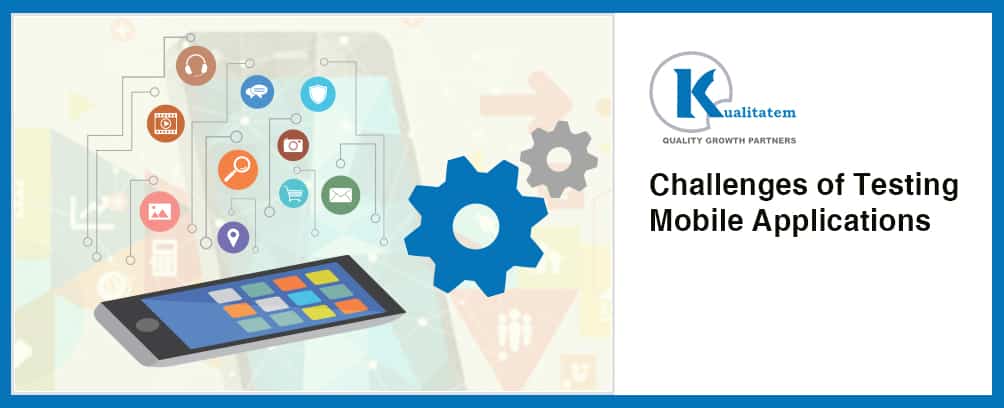Challenges of Testing Mobile Applications

- January 20, 2016
- admin
Facing the Hydra! A Mobile App Tester’s Monstrous Challenge…
The rapid increase in the use of mobile phones has led our generation into believing that their lives would be at a standstill if their smartphones are taken away from them. This, unfortunately, is quite true. Smartphones have made life much easier as they give an unlimited access to internet while on the go. However, what is actually driving the success of mobile phones is the application market behind it.
Businesses are in a highly competitive race to come up with new mobile applications all the time. This has created problems for developers as they have to produce apps quickly and efficiently. It has become a major challenge for them as they have to maintain functionality of these apps. Apart from functionality, security of user data is also at risk. All these add up to monstrous challenges for the app tester but for every nine headed hydra, there is a Herakles to rise up to the challenge.
This migration towards mobile devices presents a whole new set of challenges to testing market. Mobile users will certainly not go back to the app that never worked for them in the first place. So testers have to make sure that their product is hundred percent robust before it is rolled out to the market.
There are some common problems that testers have always faced while testing mobile applications. They are listed below:
- Mobile applications are run on a variety of devices so one needs to make sure that they are not fragmented.
- Ideally, the functionality of the app is expected to remain consistent across multiple devices so the app needs to be tested across various platforms.
- It is extremely difficult for testers to maintain the same test environment and write the same risk profile due to the ever- changing mobile technology.
- Discrepancies across multiple OS versions of devices arise even while testing on the same platform.
- You have to look beyond the functional capabilities of an app and consider usability because people tend to pick up an app that is user friendly.
- Automation testing is a fast paced process and it tends to pose a hurdle to slow processing hardware devices making it impossible to automate test these mobile applications.
- Compared to other testing types, mobile testing is relatively new and therefore, tools to test these apps are not readily made available which tends to delay the process.
Mobile Application Testing is difficult due to compatibility issues as a mobile application is deployed across varying devices that have different operating systems (i.e. iOS, Android, OxygenOS, Windows, etc.), manufacturers (Samsung, HTC, Nokia, OnePlus, Apple etc.) and keypad types (virtual keypad, Physical keypad).
One needs to have a practical approach while testing mobile apps because it is impossible to cover all devices and OS versions. The challenges of testing mobile applications are many but one needs to come up with the right strategy to come up with a good quality app.
Every aspect of the app must be validated before it is released into the wildly competitive app market. Consider for example the compatibility issues and the impact of upgrades. One needs to keep a fluid structure as requirements change and are in a constant state of flux during testing. So it is imperative to plan the testing in stages. Without effective and efficient resolution of the challenges faced by a mobile app tester, it is unlikely that the market will see a good app. So now we all know wherein the secret key to a good app resides.











